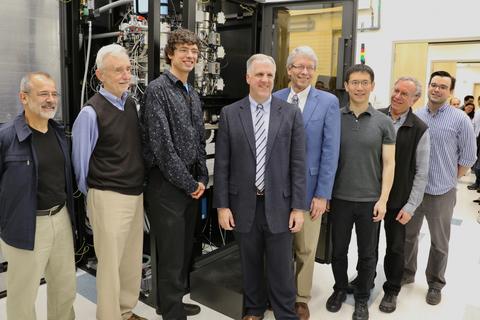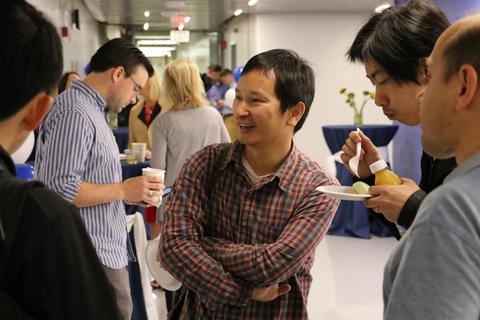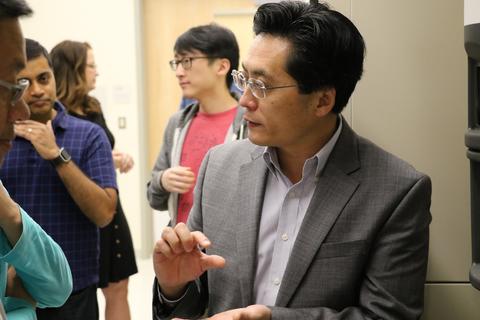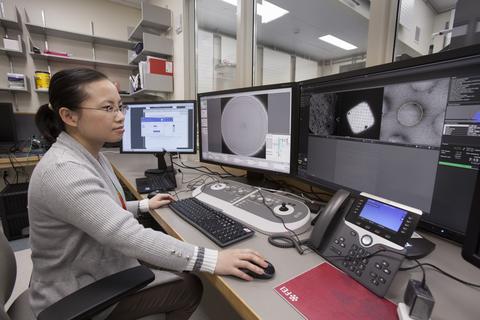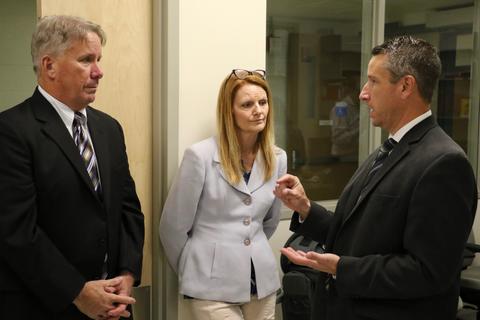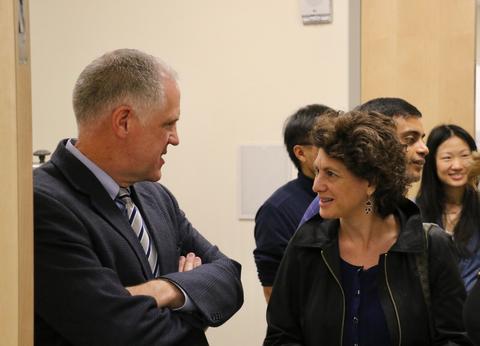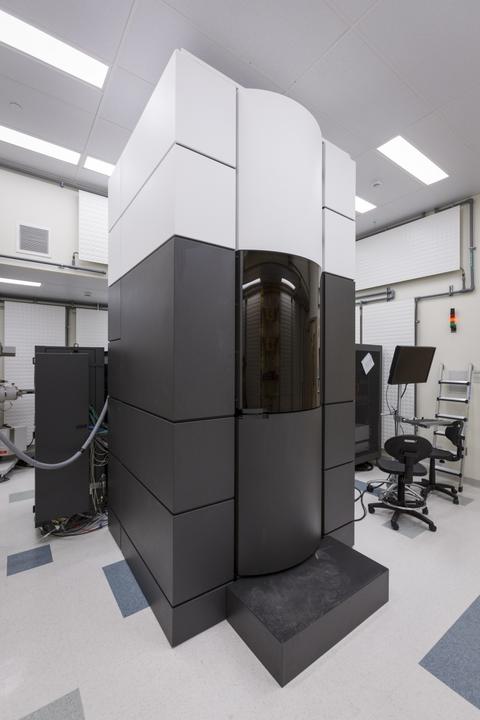By Jon Atherton
The Krios cryo-electron microscope, a technology that will enable scientists to visualize the molecules of biological life in atomic detail, was unveiled June 8 at Yale’s West Campus.
Welcoming guests from across the University, Scott Strobel, Vice President of West Campus Planning and Program Development said that the Krios represents a major investment by the University that will drive new discoveries in structural biology research.
“The field of electron microscopy has recently undergone a “resolution revolution” and this instrument brings the power of that revolution to scientists at Yale. I want to recognize Provost Ben Polak and the University’s leadership for making this transformational investment in research technology. The Krios may be housed at West Campus, but it is a resource that is available to scholars across the University,” he said.
Scientists throughout Yale will soon begin exploring the full capabilities of the world’s most powerful cryo-electron microscope for three-dimensional characterization of biological molecules. Having the microscope at Yale will increase accessibility to this cutting-edge technology and ease the entry barrier for employing this exciting approach to bio-molecular research.
Using ultra-sensitive techniques at unprecedented resolutions, the Krios allows physical measurements to be combined with computational modeling resulting in a significant increase in the accuracy of sample measurement. Using this method, researchers are able to visualize the most intricate details in the machinery of life.
Speaking at the opening, Deputy Provost for Research Steven Girvin cited the importance of institutional collaborations across numerous departments at Yale.
“I want to thank the many faculty who initially proposed this new technology, and to Dean Robert Alpern and Scott Strobel for their close partnership,” he said.
“Yale has a long and storied history in structural biology, and this marvelous new capability is going to allow us to go forward with research and learning about the molecular structures that control our health.”
Dan McGee of Thermo Fisher Scientific described the “paradigm shift” in the way science is now being conducted, where scientists themselves are guiding the development of new technologies.
The Krios is being put through its final paces by Shenping Wu, the research scientist responsible for the West Campus-based facility. Dr. Wu will support a broad spectrum of Yale’s scientists who are interested in taking advantage of this revolutionary technology to further illuminate the structural details of biological systems.
